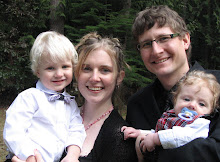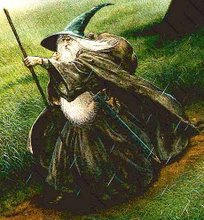Dust
I have lately been privileged to own a number of short teaching video's done by a young pastor by the name of Rob Bell. They have short misleading names like Flame or Noise or Bullhorn. They are all no longer than 15 minutes or so and focus on a simple theme or concept that Rob explores. They are quite insightful. 

Well, when Jesus approached Peter as he was fishing, he said, 'follow me'. That was what a Rabbi would say to a new apprentice who had just been accepted! The reality is, though, that Peter, fishing in the family trade with his father, was one of those who didn't make the cut ... he didn't have what it took to become an apprentice of a Rabbi. He was probably no older than 20 years old! And Jesus, a Rabbi, comes to him, and essentially says - 'I believe you can become like me - follow me'. No WONDER Peter just drops his nets and follows! This is the most coveted and honoured profession of his time and some respected and esteemed Rabbi comes to him and says these words. God is saying to him - I believe you can be like me!

































































































































































































